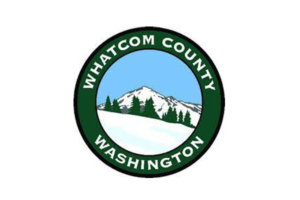We sometimes get calls from business leaders who are stuck. They lay out a number of issues hoping we can help them. This might be an owner of a food hub that has been in operation and growing rapidly for several years but is still not making profits, or an entrepreneur who launched a new specialty food company that isn’t quite getting enough traction in the market.
Their overall sentiments are similar: “We’ve gotten this far on hard work, ingenuity and some luck, but we’re starting to face new issues and we aren’t sure how to grow the business.” The conversations usually end with something like “It’s embarrassing to admit this, but we don’t have a business plan.”
We love to work with clients like this.
Whether or not they know it, they are following principles of lean startup. Lean startup is a development process for business ideas that follows a rapid prototyping model: get something to market fast – a minimum viable product – and iterate based on market feedback. The aim is to minimize upfront investments until you have “proof of concept”, or sufficient evidence that customers want and are willing to pay for your product or service.
This is a great time to write or refine a business plan. There is operating data on which to base projections, and an understanding of the drivers of customer acceptance. We can help refine the strategy based on rigorous primary and secondary research, build the financial forecast, and put the team’s vision and experience into a blueprint to help them steer the business forward.
We also get calls from non-business people who are stuck. They may be nonprofit teams, community groups (such as a food policy council), or individuals with a strong vision for changing their local food system in some specific way. They recognize the need to involve stakeholders and engage business people to help them identify the right enterprise model and ultimately bring their vision to life. Their question is usually “We see a clear need and are excited about the possibilities, but a little overwhelmed by all we don’t know. How do we get from here to there?”
We love to work with clients like this – in fact most of our clients fit this description. What they are really asking is “How do we ensure we don’t waste everyone’s time and resources on a fool’s errand?”
With teams like this, we embark on a stage-gate planning process that tests, validates and refines a business case before advancing. It begins with (1) helping our client organize stakeholders into an effective planning team, then engages that team in (2) identifying the most opportune ideas for development, (3) assessing the market feasibility of these ideas; and if all signals are “go”, (4) developing a comprehensive business plan for fundraising and launch. Like lean startup, stage-gate allows a team to minimize overall investment and risk by identifying and resolving strategic issues, but it differs because the process is undertaken before the business is launched.
Which is the better approach to launching a business? As you might expect, it depends, and it may be both, based on the business concept, stage of development, team and type of entity. The following points outline general characteristics of businesses better suited to one form of planning versus the other, but I can think of exceptions in almost every case.
Business Concept
- A business requiring investment in fixed assets – say a farm, warehouse, or processing facility – will have fewer lean startup options and can significantly reduce startup risk through the stage-gate process.
- Businesses that can be easily prototyped by sharing assets and outsourcing aspects of the business are better candidates for lean startup methods. For example, while still testing their concept, a value-added products entrepreneur might pay an hourly rental fee at a community kitchen, or a sales and distribution business might utilize third-party logistics providers, before bringing those functions in house.
Stage of Development
- Lean startup is appropriate for business ideas that have been preliminarily vetted in some meaningful way – perhaps because a new offering emerged from an existing business that is responding to market signals, or by an entrepreneurial team that has spoken to and received positive feedback from prospective customers on their concept.
- Stage-gate development is appropriate for teams that are in the early stages of organizing, who are still studying the food system and business landscape to identify opportunities. As these projects advance beyond the feasibility study and into business planning, it can be advantageous to identify an operator and adopt lean startup principles by quickly setting up operations as the business plan is refined and capital is raised.
Team
- Lean startup is a great approach for operators – the entrepreneurs and leadership team running the business. They can be nimble and responsive to market feedback, and they have the authority to make decisions independently as they learn.
- Many of our clients are food coalitions or municipal planners that undertake the pre-development work to attract private enterprise. A collaborative stage-gate process of organizing stakeholders, scanning the landscape to identify opportunities and conducting a robust feasibility study can yield not only better business plans, but it also establishes the connective tissue in a community that will support the business once launched.
Entity Type
- Lean startup is most appropriate for enterprises that are primarily demand-driven and have a profitability goal. This is because demand can be assessed rapidly through prototyping, learning whether or not to take the next step through immediate market feedback. For example, a recipe using local ingredients can be developed at home and tested with friends and family, if successful produced in small batches at a commercial kitchen and sold at a farmers market, and if successful sold to local stores and restaurants, and so on. Each step is taken if there is market acceptance and a clear path to profitability.
- Many local food ventures are more complex. They may focus on building both demand and supply, and supply can take many years to respond – not the rapid market feedback needed for iteration. Additionally, they may focus on goals beyond profitability, such as sustainability, health and wellness, food access and justice, and education – impacts that can take months or even years to generate and observe. The stage-gate planning process is suitable for these types of projects because it uncovers the short and long-term needs and demands across the food landscape, and actively engages stakeholders in developing plans to address them.
| Stage-Gate Planning | Lean Startup | |
| Business Concept | Fixed asset businesses requiring large capital investment to demonstrate concept | Can be prototyped using shared assets |
| Stage of Development | Community Organization, Opportunity Identification | Feasibility Assessment, Business Planning, Growth |
| Team | Community groups, food policy councils, municipal planners that do collaborative pre-development work | Operators that run the business |
| Entity Type | Nonprofit, complex market drivers and longer-term goals | For-profit, demand-driven |
If in reading this post you started feeling like you took the “wrong” approach – don’t worry! It’s never too late to step back and engage in a comprehensive research and planning process, nor is it impossible to begin rapid prototyping to evaluate and grow your business. In either approach, the main purpose of planning is to reduce startup risk, avoid fatal strategic mistakes, and engage key stakeholders in the process so they are poised to support the business as it launches and scales.
This is my first blog post. I hope it offers you some help in thinking about planning and which approach might be best for you, your project and your community. If you have questions or need help in your planning process, you can read more about our stage-gate approach on our website or contact us directly.


